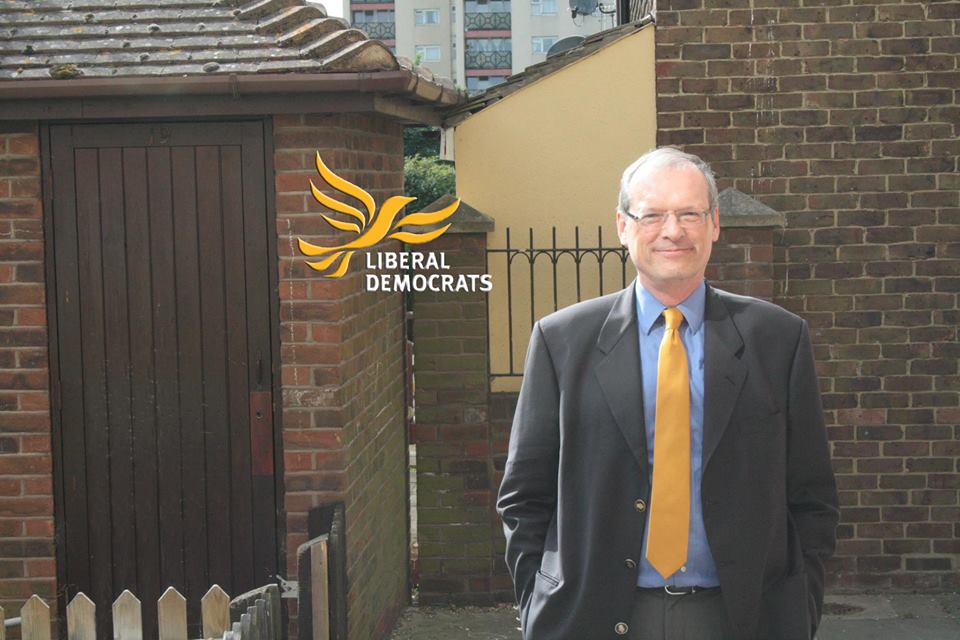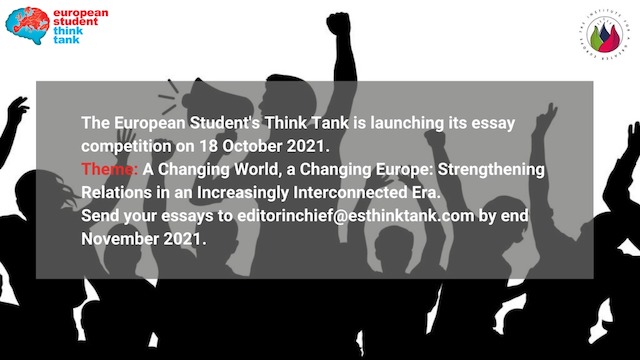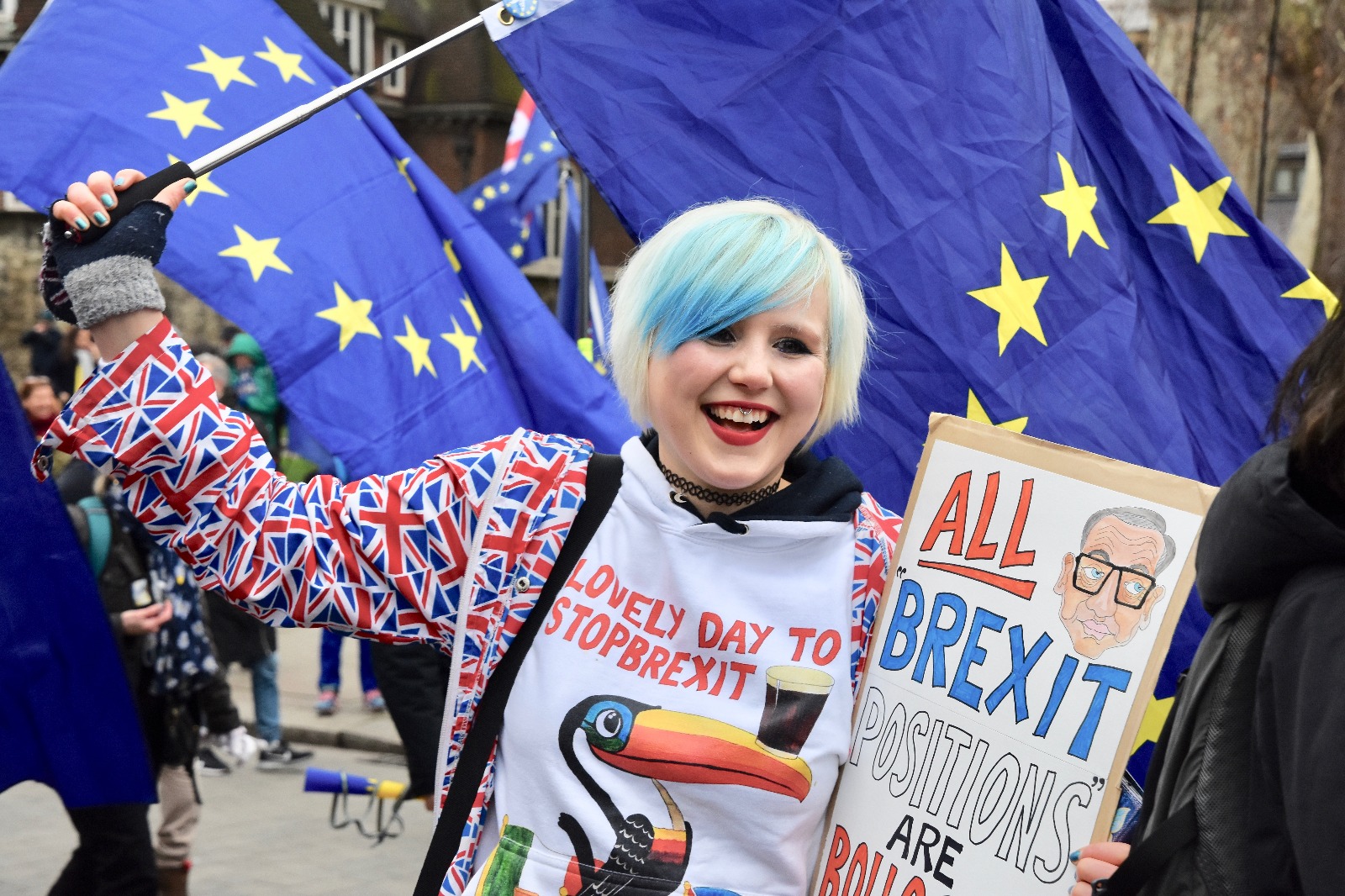
The EST was delighted to host a snap interview with European diplomat George Cunningham in September. Mr Cunningham began his career as a soldier, worked for several multinational companies, and ran an international non-governmental organisation. He then became a UN official, and ended up a senior diplomat for the European Union, figuring in several roles, including being in charge of the EU Delegation to New Zealand. He has been working for the European External Action Service as deputy head of division for the EU’s relations with China since 2012. He also stood as a parliamentary candidate in the 2015 British General Election.
EST: George, many students following the EST will be interested in pursuing international careers themselves. What advice would you give them? How should they go about understanding the world around them?
GC: Thanks for interviewing me! I’d start by making a conscious effort to take yourself out of your comfort zone. Through the internet, we can access information on an unprecedented scale, all from behind our screens at home. However, knowing facts and figures does not equate to understanding people. The key to building relationships at any level is trust. Building trust requires empathy, the ability to see the world through the eyes of another person, to understand their history and culture, the background to their world view.
EST: And how do you do that?
GC: I’ll give you an example. To raise my political awareness in this way (and also funds for charity in return for the hospitality I received), I once walked from Alexandria in Egypt to Cape Town in South Africa. It took 27 months. That experience has proved invaluable for me because I came across people I would otherwise never have met. I experienced in some cases their hunger and deprivation. I developed a greater respect for the views of others. Perhaps it is not necessary to walk the length of Africa but the maxim remains the same: immerse yourself with others from a totally different culture, challenge yourself to truly understand them.
EST: Understood! So what can one be doing when at home to understand the world?
GC: Read a lot about what is going on in the world and especially the historic background. Also learn at least one of the key world languages that can get you around the place (Arabic, Spanish, French, Russian). It does not matter whether you want to work in business, politics, or diplomacy. They will come in just as useful. It may be tempting to believe that English is sufficient but do not neglect the rise of China and the importance of Mandarin too. Don’t just rely on others to do you the courtesy of addressing you in English but address them back in their own language too which again builds mutual trust and understanding.
EST: Changing track slightly…In light of the forthcoming referendum, why is remaining in the EU as important as ever for the UK?
GC: Britain does over half its world trade within its fellow EU Member States. If it leaves the club and goes back to EFTA, it will have no say concerning how the Single Market develops. An important free market voice would have been lost within the EU, with the likelihood that the EU might eventually take decisions disadvantageous to British interests without Britain being able to do anything about it. Now that’s a real loss of sovereignty! Whether it is the refugee crisis or climate change, the EU’s political weight as a whole in the world combined with greater coordination amongst EU Member States is the only way to address and eventually solve many of the issues. Lack of British political leadership over the years coupled with a sensationalist media desperate to sell newspapers to survive has undermined the image of the EU in Britain. The EU has been made a scapegoat by successive British Governments to avoid themselves taking the responsibility for having agreed to decisions at the European level in the first place.
EST: In his best-selling book ‘Capital in the Twenty-First Century’, Thomas Piketty posited that to attract the foreign capital they require to remain competitive, Europe’s manufacturing industries will end up being owned by Chinese investors. At the same time, there are many Europeans who feel that a dependence on American companies such as Google, Apple, and Facebook is undesirable, and that we should build our own equivalents. What would you say to address these concerns? Should we just accept mutual dependencies as part and parcel of the 21st century?
GC: I do not see a problem with mutual dependence as long as it does not lead to a threat to our security. And there’s the nub of the problem. For instance, US internet companies mining our personal data which assists US surveillance, while Chinese companies investing in British infrastructure including our telecom networks. Interdependence also means reciprocity which is certainly not the case in the Chinese market. Countries and companies should be welcome to participate in our economy without gaining the potential to restrict our independence of action. That is why I see a much greater loss of real world sovereignty here than those that purport to believe the EU is that threat. Mutual economic dependence should not lead to potential political dependence!
EST: Many British students reading this will want to get involved with the “In” campaign. How can they help?
GC: Young people are the most important activist base for such a campaign. If you are party political, you should join the various British political party “In” campaigns (hint: the Liberal Democrats are the only party which is 100% “In” and not split on the issue). If not, then join the European Movement. If you are a British student studying abroad and will be away longer than the 2015-16 academic year, make arrangement already now to give your vote by proxy to a relative or friend to vote on your behalf in Britain. There is no date set yet for the referendum vote, but we work on the assumption it will be September 2016. I am the Vice-Chair of the Brussels and Europe Lib Dems so anyone on the continent is welcome to contact me to join our campaign on: gfjcunningham@gmail.com !
EST: Thank you for sharing your expertise with us Mr Cunningham! We’re off to buy some walking boots…

 The ’Ndrangheta’s Infiltration and Threat to European Institutions
The ’Ndrangheta’s Infiltration and Threat to European Institutions  From Paper to Practice: How Grassroots Norms Undermine Gender Rights in Pakistan
From Paper to Practice: How Grassroots Norms Undermine Gender Rights in Pakistan  Exploited Childhoods: The Role of Global Corporations in Perpetuating and Mitigating Child Labour
Exploited Childhoods: The Role of Global Corporations in Perpetuating and Mitigating Child Labour  Human Rights Challenges in Addressing SLAPPs in Media, NGOs and Journalism in the EU
Human Rights Challenges in Addressing SLAPPs in Media, NGOs and Journalism in the EU 
